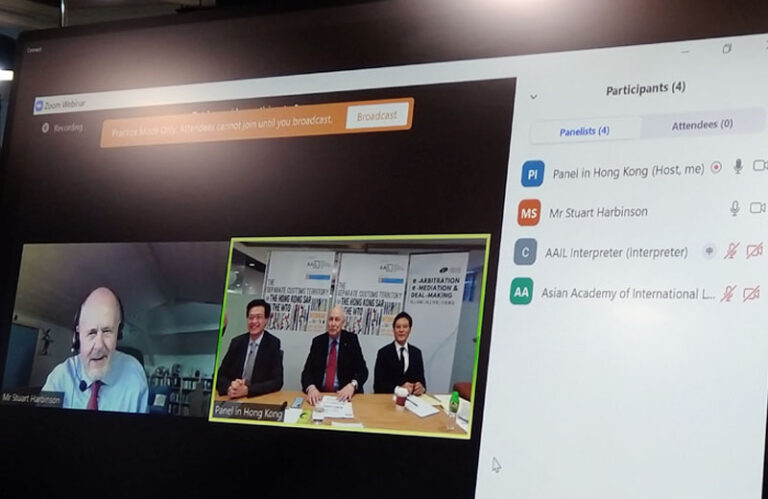Asian Academy of International Law
The Hong Kong Chinese Enterprises Association Legal Affairs Steering Committee
Other than a contracting territory of the General Agreement on Tariffs and Trade (GATT) and a founding member of the World Trade Organization (WTO), Hong Kong is famed for being one of the leading financial and trading centres of the world. However, the recent new rule of the United States (US) on the origin marking of Hong Kong products is widely considered as an attempt to challenge the status of the Hong Kong SAR (HKSAR) as a separate customs territory and a member of the WTO, which is guaranteed under the Marrakesh Agreement Establishing the World Trade Organization and the Basic Law of the HKSAR.
This webinar, organised by the Asian Academy of International Law with the support of the Legal Affairs Steering Committee of the Hong Kong Chinese Enterprises Association, aimed to deliberate on various pertinent issues involved.
The webinar was moderated by Mr Adrian Lai, who briefly recapitulated the US President’s Executive Order on Hong Kong Normalisation, the subsequent origin marking measure on imported goods from Hong Kong, as well as the strong objection of the Hong Kong government and the actions taken.
Following that, as the first speaker, Dr Anthony Neoh offered a retrospective and detailed review of the history of the GATT and WTO, highlighting Hong Kong’s status as a separate customs territory and a founding member of WTO, while noting the reduction of tariffs as a contribution of GATT and WTO.
Next, Professor Chin Leng Lim continued to deal with some of the misunderstandings, myths, and misrepresentations related to the origin marking issue, including such measures are discriminatory against Hong Kong and Hong Kong’s autonomy shall not be diminished as it will not change Hong Kong’s status, etc.
Finally, Mr Stuart Harbinson, joining the webinar from Switzerland, gave an overview of the trade relations between Hong Kong and the US, noting that in general Hong Kong is a major positive force in the liberalisation of trade as well as the ninth biggest budget contributor of the WTO, and emphasising that Hong Kong enjoys full membership with the autonomy to develop its own trade policies and establish relationships with other WTO members.
• Very informative with different views expressed by experts.
• A complete picture of the issues – from background to what might happen.
• Explanations were very clear and I had the chance to understand the background concerning this issue.
• It helps me better understand Hong Kong’s role in the GATT and WTO and why this issue is worth discussing and contemplating.

With Chinese Interpretation